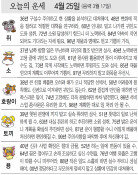Hong Kong using halal food to attract Muslim biz community
Hong Kong using halal food to attract Muslim biz community
Posted April. 06, 2012 06:15,
Hong Kong is attracting more Muslim money and businessmen amid increasing economic ties between China and the Muslim business community.
The online version of Time magazine Wednesday said halal food, or food made in accordance with the Quran, is popular among Muslim businessmen in Hong Kong. The city and China have raised trade with Islamic countries like Indonesia and the United Arab Emirates, so more restaurants in Hong Kong are selling halal food or dumplings without pork for Muslim businessmen. Pork is widely used in Chinese food but banned by Islamic law.
The Hong Kong Tourism Board says the number of tourists to the city is growing 20 percent annually. The number of halal-certified restaurants and markets jumped from just 14 in 2010 to three times that figure in a year, with the Tsim Sha Tsui district alone having 13 halal-certified restaurants.
Tourists from the Middle East, Pakistan and Indonesia usually buy wholesale mobile phones manufactured at mainland factories for resale at home.
The magazine said establishing Muslim-friendly services in Hong Kong could well be part of a multi-pronged attempt to establish a stronger business relationship between the resource-rich Muslim world and the greater China region, which is in dire need of fuel for its burgeoning economy.
Mutually beneficial cooperation between China and the Muslim world is extremely important to China, said Ma Hongjian, president of the Beijing-based China-Arab Council for Investment Promotion.
Since the 2001 terrorist attacks on the U.S., he said, trade partnerships between the two have skyrocketed because many Muslim entrepreneurs could not obtain visas to the West and instead started going to China in droves.
There are so many examples of the Chinese government trying to provide facilities to our Muslim guests, Ma added.
With soaring exchanges between China and the Islamic world, Hong Kong has positioned itself as a conduit for Muslim business with mainland China. In addition to offering more dining options to the Islamic community, the city is also developing a strong platform for Islamic finance.
We hope to develop a wholesale Islamic capital market, a spokesperson for Hong Kongs Financial Services and the Treasury Bureau said.
Creating an Islamic capital market has been a major issue since Hong Kong`s first discussion on the matter at parliament in 2008, including Islamic bonds known in Arabic as "sukuk."
Sukuk pays investors in assets to avoid the exchange of interest in accordance with Islamic law. Initiated by the Planning and Strategy Ministry, the Korean government since 2009 has attempted to revise its Special Tax Treatment Control Act, under which investment return of sukuk is not taxed because it is considered interest that attracts oil money from the Middle East.
Due to a backlash from Christians over sukuk, the revised bill failed to pass the National Assembly in February. Discussion has also not resumed on the matter in parliament.
jaj@donga.com
Headline News
- Med professors announce intention to leave hospitals starting Thursday
- Bridge honoring Sgt. Moon Jae-sik unveiled in Pennsylvania
- Chief of Staff Chung tells presidential secretaries to stay away from politics
- US FTC bans noncompete agreements
- N. Korea launches cyberattacks on S. Korea's defense companies







